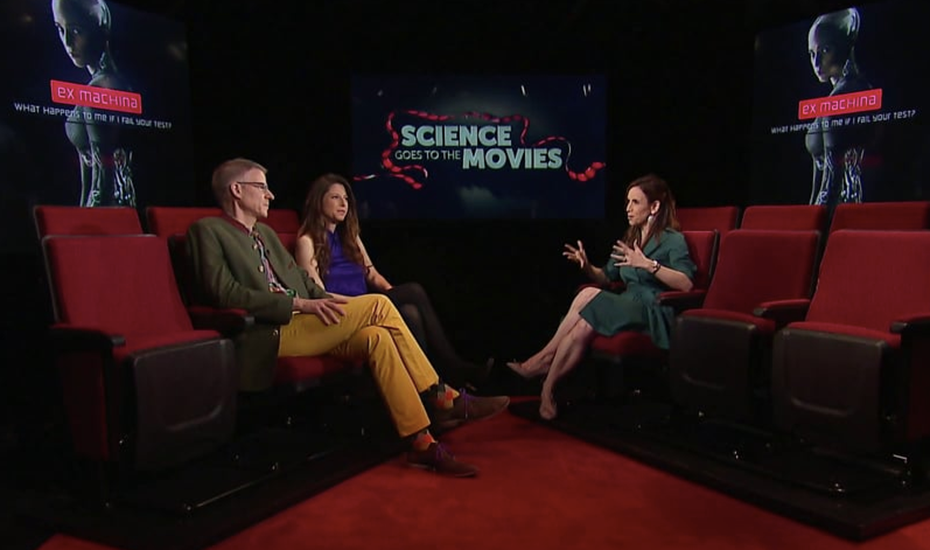
Can it be that a human soul is really made up of trillions of tiny robots? Can an artificial intelligence have feelings or experience love?
In episode #108 of Science Goes to the Movies, Weizmann Advocate for Curiosity Dr. Heather Berlin and Faith Salie are joined by Christof Koch, President and Chief Scientific Officer of the Allen Institute for Brain Science in Seattle, for a discussion about artificial intelligence (AI) and the fluid nature of consciousness as both apply to the 2015 film Ex Machina as well as 1982’s Blade Runner.
I was first bewitched by the brilliance of Heather Berlin years ago, after she and Koch appeared together on a World Science Festival panel, so this episode holds a special fondness for me, by which I mean, the trillions of little robots in my brain that have no idea who I am are working together to create the very convincing illusion that I continue to adore Heather Berlin.
“We have a soul; it’s made up of trillions of tiny robots. Each cell in our brain is a little tiny robot. Each one in and of itself is not particularly conscious, but when they all sort of come together into this sort of machine which is our brain and our body, it produces this subjective feeling,” Berlin said. “In a sense we are robots, we are these creatures that come pre-programmed, we have instincts and drives even though they might have evolved over time.”
“If Ava has conscious experiences then she has the same moral right that you or I have because ultimately I think ethical consideration has to revolve around the ability of this thing to experience the world, to experience pain, to experience pleasure, to experience the fullness of the world,” Koch says of the film’s central character. “That’s ultimately what any ethics has to be.”
Let’s all watch the final scene of Blade Runner, Tears in Rain. I’ve seen things you people wouldn’t believe….


